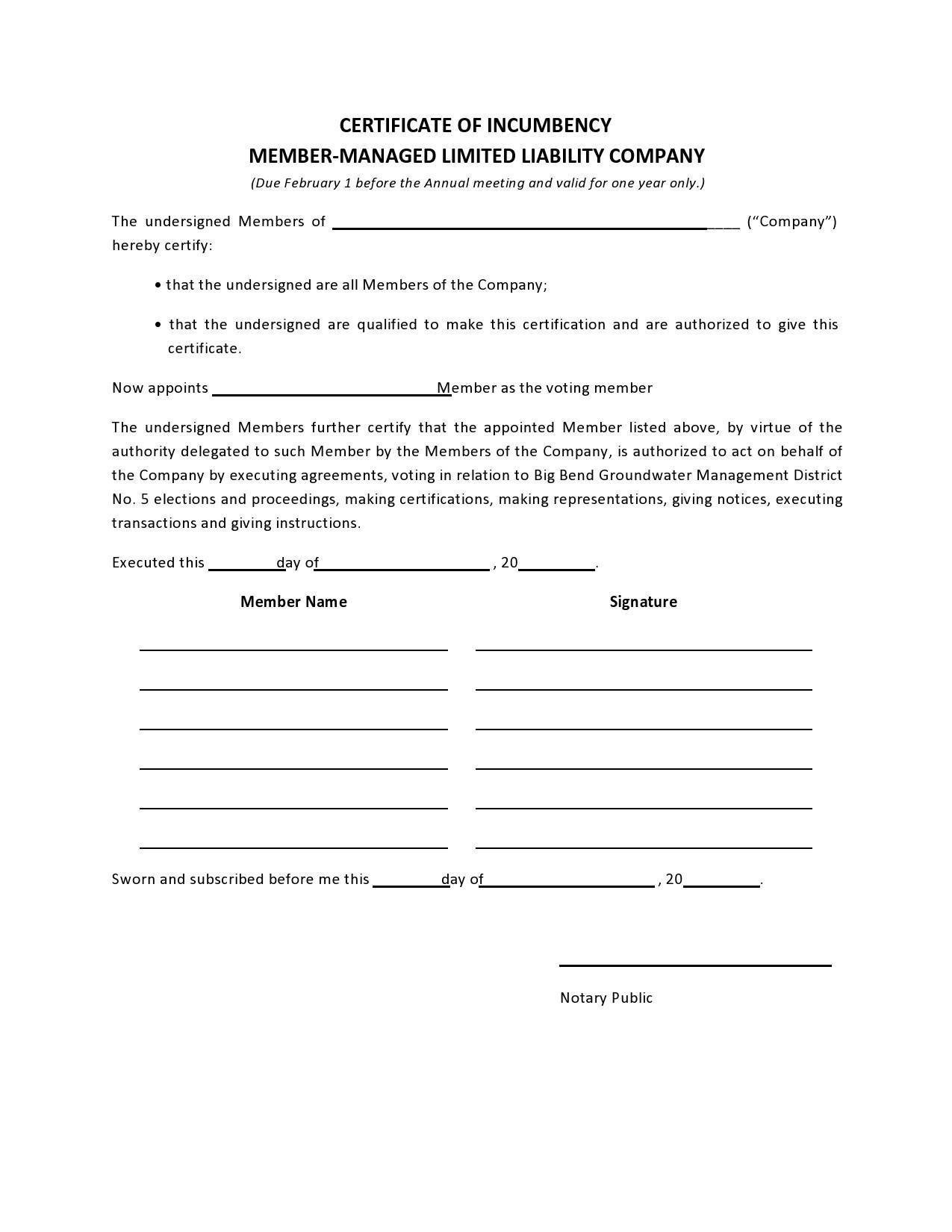A certificate of incumbency is a document that lists the current officers and directors of a corporation. It is typically used as proof of the individuals who are authorized to represent the corporation and make legal decisions on its behalf.
The certificate of incumbency is also known as a certificate of directors or a certificate of officers. It is often required for financial transactions, such as opening a bank account or applying for a loan. In some cases, it may also be required for legal purposes, such as filing documents with the government or entering into contracts.

To create a certificate of incumbency, the corporation’s board of directors or its secretary must prepare a document that lists the names and titles of the current officers and directors. The document must also be signed by a current officer or director, as well as the corporation’s corporate seal.
The certificate of incumbency should be kept on file with the corporation’s important documents, such as its articles of incorporation and bylaws. It is important to update the certificate of incumbency whenever there is a change in the corporation’s officers or directors, as the document should accurately reflect the current individuals who are authorized to represent the corporation.
There are a few different situations in which a certificate of incumbency may be required. For example, a bank may ask for a certificate of incumbency when a corporation is opening a new account or applying for a loan. In this case, the certificate is used to verify the identity of the individuals who are authorized to make financial decisions on behalf of the corporation.
A certificate of incumbency may also be required when a corporation is entering into a legal contract, such as a lease or a purchase agreement. In this case, the certificate is used to verify the identity of the individuals who are authorized to bind the corporation to the terms of the contract.
In addition to being used for financial and legal purposes, a certificate of incumbency may also be required for other types of transactions. For example, a corporation may be asked to provide a certificate of incumbency when it is applying for a business license or when it is filing documents with the government.
It is important for corporations to keep their certificate of incumbency up to date and to provide it when it is requested. Failing to do so can result in delays or problems with financial transactions or legal contracts.
In summary, a certificate of incumbency is a document that lists the current officers and directors of a corporation and is used to verify the identity of the individuals who are authorized to represent the corporation. It is often required for financial transactions, such as opening a bank account or applying for a loan, and may also be required for legal purposes, such as entering into contracts. It is important for corporations to keep their certificate of incumbency up to date and to provide it when it is requested.